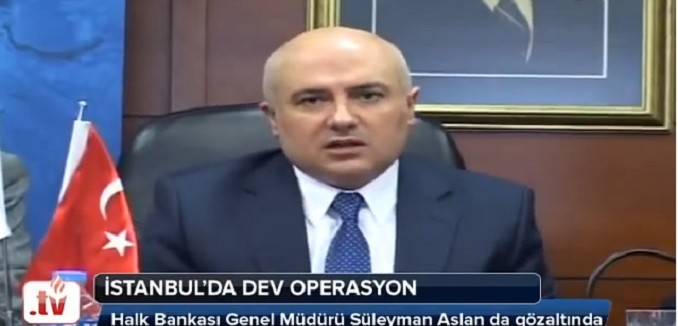The domestic upheaval rocking Turkey – which has now slipped into open political warfare between the Islamist Justice and Development Party (AKP) and the powerful Islamist movement led by U.S.-based cleric Fethullah Gulen, and which is threatening to bring down Turkish Prime Minister Recep Tayyip Erdogan – seems set to directly impact policy discussions over the robustness of international sanctions against Iran and the degree to which the Obama administration has balanced sanctions enforcement with diplomatic outreach.
At the broadest levels, a Turkish corruption probe led largely by Gulen-linked police and judiciary officials has ensnared AKP elites, and AKP leaders up to and including Erdogan have responded by purging hundreds of police officers and prosecutors. More specifically, according to Mark Dubowitz and Jonathan Schanzer – respectively the executive director and vice president for research at the Foundation for Defense of Democracies (FDD) – a so-called “gas-for-gold” scheme in which a bank linked to the Turkish government helped Iran circumvent international sanctions is figuring prominently in the corruption scandal.
Dubowitz and Schanzer describe police moves against Suleyman Aslan, the CEO of state-owned Halkbank, and Reza Zarrab, an Iranian businessman heavily involved in the gold trade. Officers have reportedly found shoeboxes containing $4.5 million in Aslan’s home, and Zarrab has been arrested on corruption-related charges. Halkbank is being accused of among other things having permitted Iran to access billions of dollars in escrow accounts to purchase and move gold into Iran, allowing the Islamic republic to bolster its increasingly inaccessible foreign reserves.
The mechanism Halkbank used, per Dubowitz and Schanzer, was a “golden loophole” that allowed “the transfer of billions of dollars of gold to so-called “private” entities in Iran,” during a period of time when the Obama administration didn’t blacklist all gold transfers to Iran and delayed congressional efforts to do so by six months:
It’s also possible, however, that the Obama administration’s decision had less to do with Turkey, and more to do with coaxing Iran into signing a nuclear deal. In the one-year period between July 2012, when the executive order was issued, and July 2013, when the “golden loophole” was closed, the Obama administration’s non-enforcement of its own sanctions reportedly provided Iran with $6 billion worth of gold. That windfall may have been an American olive branch to Iran — extended via Turkey — to persuade its leaders to continue backchannel negotiations with the United States, which reportedly began as early as July 2012. It could also have been a significant sweetener to the interim nuclear deal eventually reached at Geneva, which provided Iran with another $7 billion in sanctions relief.
The dynamic has the potential to directly impact policy debates over how to approach negotiations with Iran. The administration is locked in a pitched battle with a bipartisan group of dozens of senators who are seeking to move forward legislation that would impose new sanctions on Iran in the future under certain conditions. New restrictions would be placed should Tehran either violate its commitments under the Joint Plan of Action (JPA) during an upcoming six-month negotiation period or, at the end of that period, refuse to verifiably put its nuclear program beyond use for weaponization.
The administration has argued that such legislation is unnecessary because so-called core sanctions on Iran remain in place even after the financial relief provided by the JPA, and the administration is committed to enforcing those. Evidence that the White House declined in the past to enforce sanctions as an olive branch to Tehran may undermine Congressional confidence in those assurances.
[Photo: 17Aralik2013Baskini / YouTube ]




